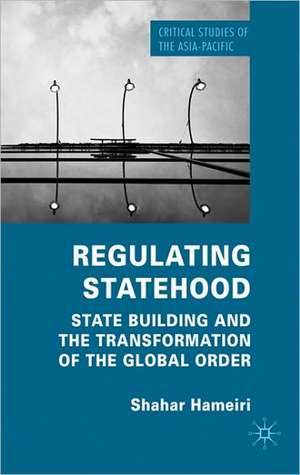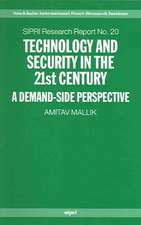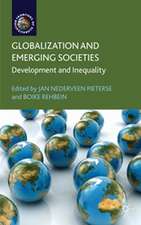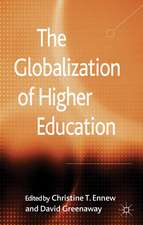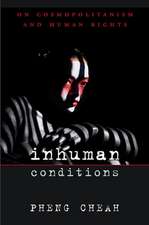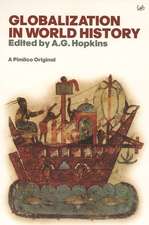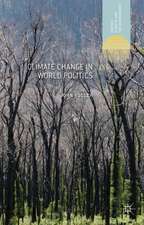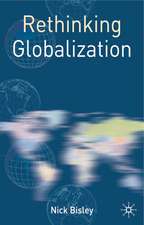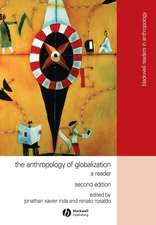Regulating Statehood: State Building and the Transformation of the Global Order: Critical Studies of the Asia-Pacific
Autor S. Hameirien Limba Engleză Hardback – 14 iul 2010
| Toate formatele și edițiile | Preț | Express |
|---|---|---|
| Paperback (1) | 383.50 lei 6-8 săpt. | |
| Palgrave Macmillan UK – 2010 | 383.50 lei 6-8 săpt. | |
| Hardback (1) | 388.13 lei 6-8 săpt. | |
| Palgrave Macmillan UK – 14 iul 2010 | 388.13 lei 6-8 săpt. |
Din seria Critical Studies of the Asia-Pacific
- 9%
 Preț: 630.14 lei
Preț: 630.14 lei - 18%
 Preț: 1003.70 lei
Preț: 1003.70 lei -
 Preț: 385.08 lei
Preț: 385.08 lei - 18%
 Preț: 782.57 lei
Preț: 782.57 lei - 18%
 Preț: 781.94 lei
Preț: 781.94 lei - 18%
 Preț: 729.36 lei
Preț: 729.36 lei - 15%
 Preț: 643.65 lei
Preț: 643.65 lei - 15%
 Preț: 644.18 lei
Preț: 644.18 lei - 18%
 Preț: 893.40 lei
Preț: 893.40 lei -
 Preț: 390.63 lei
Preț: 390.63 lei -
 Preț: 388.90 lei
Preț: 388.90 lei - 15%
 Preț: 475.93 lei
Preț: 475.93 lei - 18%
 Preț: 1112.92 lei
Preț: 1112.92 lei -
 Preț: 389.70 lei
Preț: 389.70 lei - 15%
 Preț: 506.14 lei
Preț: 506.14 lei -
 Preț: 383.93 lei
Preț: 383.93 lei - 15%
 Preț: 645.79 lei
Preț: 645.79 lei -
 Preț: 385.84 lei
Preț: 385.84 lei -
 Preț: 383.71 lei
Preț: 383.71 lei - 15%
 Preț: 686.18 lei
Preț: 686.18 lei - 18%
 Preț: 731.91 lei
Preț: 731.91 lei -
 Preț: 389.70 lei
Preț: 389.70 lei -
 Preț: 392.60 lei
Preț: 392.60 lei -
 Preț: 384.70 lei
Preț: 384.70 lei -
 Preț: 386.81 lei
Preț: 386.81 lei - 18%
 Preț: 781.62 lei
Preț: 781.62 lei -
 Preț: 383.93 lei
Preț: 383.93 lei - 15%
 Preț: 697.82 lei
Preț: 697.82 lei -
 Preț: 386.81 lei
Preț: 386.81 lei - 15%
 Preț: 501.06 lei
Preț: 501.06 lei -
 Preț: 382.36 lei
Preț: 382.36 lei - 15%
 Preț: 583.61 lei
Preț: 583.61 lei - 18%
 Preț: 728.28 lei
Preț: 728.28 lei - 15%
 Preț: 636.12 lei
Preț: 636.12 lei - 15%
 Preț: 642.51 lei
Preț: 642.51 lei -
 Preț: 390.63 lei
Preț: 390.63 lei -
 Preț: 393.52 lei
Preț: 393.52 lei - 15%
 Preț: 700.29 lei
Preț: 700.29 lei
Preț: 388.13 lei
Nou
Puncte Express: 582
Preț estimativ în valută:
74.27€ • 77.75$ • 61.45£
74.27€ • 77.75$ • 61.45£
Carte tipărită la comandă
Livrare economică 05-19 aprilie
Preluare comenzi: 021 569.72.76
Specificații
ISBN-13: 9780230251861
ISBN-10: 0230251862
Pagini: 248
Ilustrații: XII, 248 p.
Dimensiuni: 152 x 229 x 18 mm
Greutate: 0.42 kg
Ediția:2010
Editura: Palgrave Macmillan UK
Colecția Palgrave Macmillan
Seria Critical Studies of the Asia-Pacific
Locul publicării:London, United Kingdom
ISBN-10: 0230251862
Pagini: 248
Ilustrații: XII, 248 p.
Dimensiuni: 152 x 229 x 18 mm
Greutate: 0.42 kg
Ediția:2010
Editura: Palgrave Macmillan UK
Colecția Palgrave Macmillan
Seria Critical Studies of the Asia-Pacific
Locul publicării:London, United Kingdom
Cuprins
Introduction: Regulatory State Building and the Transformation of Statehood Beyond Methodological Nationalism, Towards a New Regulatory Framework State Building, Risk Management and the Transformation of the State State Building: The Emergence of a New Mode of Governance Who Intervenes? State Transformation and the Meta-Governance of State Building The Australian Federal Police and Australia's New Regional Frontier The Regional Assistance Mission to Solomon Islands and the Politics of State Transformation State Building, Patronage and the Anti-Pluralist Politics of Stability in Cambodia Conclusion: Transformed Statehood and the Politics of Scale Notes References Index
Recenzii
'Regulating Statehood puts Hameiri ahead of the field in engaging with the practices and policy drives behind international statebuilding. Arguing that traditional approaches to the state fail to grasp the fact that international intervention aims to transform and reshape states rather than merely rebuild them, this book weaves in depth case-study material with a powerful intellectual framework. It is essential reading for anyone who wishes to understand the problems and limits of international regulation in this area.'
-David Chandler, Professor of International Relations and editor of the Journal of Intervention and Statebuilding, Department of Politics and International Relations, University of Westminster, UK
"This book investigates the partial collapse of the legitimacy of the liberal peace project while statebuilding continues regardless. It is a crucial contribution to the debate surrounding these dynamics, introducing a grounded comparative and critical discussion of how and why this happens, its implications for international order, and for the future of statebuilding. The author shows that the praxes of statebuilding have already shifted beyond current academic and policy prescriptions, and that an understanding of this is crucial if the experience of statehood by its subjects is to be situated in context and not in distant ideals."
- Oliver Richmond, Director of the Centre for Peace and Conflict Studies, University of St Andrews, UK
'This book takes on the dominant belief that rescuing failed states is simply a selfless humanitarian exercise. Shahar Hameiri argues that interventions to rescue failed states are deeply contested exercises of political power and resistance that transform both the states being intervened in and the intervening states themselves. It is a provocative and important book.'
- Michael Wesley, Executive Director, Lowy Institute for International Policy, Australia
-David Chandler, Professor of International Relations and editor of the Journal of Intervention and Statebuilding, Department of Politics and International Relations, University of Westminster, UK
"This book investigates the partial collapse of the legitimacy of the liberal peace project while statebuilding continues regardless. It is a crucial contribution to the debate surrounding these dynamics, introducing a grounded comparative and critical discussion of how and why this happens, its implications for international order, and for the future of statebuilding. The author shows that the praxes of statebuilding have already shifted beyond current academic and policy prescriptions, and that an understanding of this is crucial if the experience of statehood by its subjects is to be situated in context and not in distant ideals."
- Oliver Richmond, Director of the Centre for Peace and Conflict Studies, University of St Andrews, UK
'This book takes on the dominant belief that rescuing failed states is simply a selfless humanitarian exercise. Shahar Hameiri argues that interventions to rescue failed states are deeply contested exercises of political power and resistance that transform both the states being intervened in and the intervening states themselves. It is a provocative and important book.'
- Michael Wesley, Executive Director, Lowy Institute for International Policy, Australia
Notă biografică
SHAHAR HAMEIRI is Lecturer in International Politics and Fellow of the Asia Research Centre, Murdoch University, Australia. His research has focused on state building and new modes of governance in the Asia-Pacific. His work has been published in journals including Millennium, The Pacific Review and Third World Quarterly.
